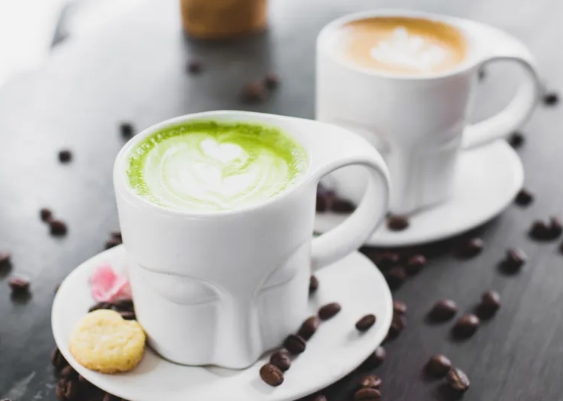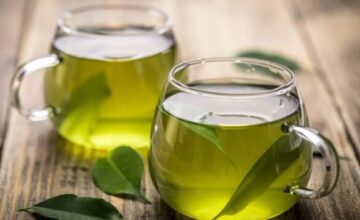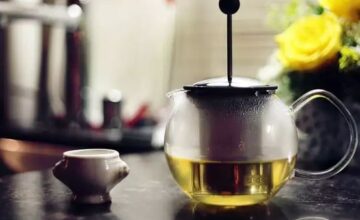
Green tea is one of the best pick-me-ups for anyone who likes their beverages to be health-filled.
In fact, green tea is not just another beverage choice, research has shown that it is a drink that’s filled with powers to improve brain function and slow down brain aging.
Not just that, it is known to reduce the chances of heart diseases, cancer, and even type 2 diabetes.
However, people who switched to green tea to cut back caffeine content from their diet must note that just like regular tea, green tea also contains caffeine.
If you are mindful about your caffeine consumption, you might want to think this through.
What is green tea?
Green tea is a potentially healthy type of “true tea” that’s made up of the leaves of the tea plant called Camellia sinensis. Typically cultivated in China and Japan, green tea has gained global recognition when it comes to healthy beverages. Green is flooded with health benefits and is recommended by several health experts. There are different types of green tea, like matcha, dragon well green tea, gunpowder, and sencha. Different green teas have different flavors and benefits.
Green tea has had a reputation for being super-healthy which might have led to this common myth that green tea is naturally caffeine-free. However, that’s not true. Green tea does contain natural caffeine.
What is caffeine?
Caffeine is a natural chemical that’s typically found in the leaves, beans, and fruits of over 60 plants. Its serves as a natural stimulant for the nervous system. Typically, people incorporate it into their diets to boost alertness and fight any fatigue. Although if consumed in moderation, caffeine has a number of health benefits, overconsuption can lead to restlessness, headaches, acidity, insomnia, or an uneven heartbeat. A number of food items and beverages have caffeine content, such as coffee, tea, green tea, chocolates, sodas, and even certain gums and candies. Here is a list that clarifies and compares caffeine content in common beverages,
- Green tea: 30–50 mg caffeine content per serving (8 ounces)
- Instant coffee: 27–173 mg caffeine content per serving (8 ounces)
- Plain, brewed coffee: 102–200 mg caffeine content per serving (8 ounces)
- Espresso: 240–720 mg caffeine content per serving (8 ounces)
- Black tea: 25–110 mg caffeine content per serving (8 ounces)
- Yerba mate: 65–130 mg caffeine content per serving (8 ounces)
- Soft drinks: 23–37 mg caffeine content per serving (8 ounces)
- Energy drinks: 72–80 mg caffeine content per serving (8 ounces)
Clearly, green tea contains around half the quantity of caffeine as other beverages like coffee and black tea.
How much caffeine does green tea contain?
When it comes to caffeine content, one cup of pure green tea typically contains about 25 milligrams of caffeine per serving. (8-ounce serving) Because, it’s 1/4th of the caffeine content in a typical cup of coffee, it’s usually considered low on caffeine. However, there are different types of green tea and each one has different caffeine content. Here is a list of some popular green tea brands and their caffeine content.
- Lipton Brisk Green Tea (12 oz.) – 6 milligrams of caffeine (4 mg per 8 oz.)
- Arizona Green Teas (23.5 oz.) – 22 milligrams of caffeine (under 7.5 mg per 8 oz.)
- Snapple Green Tea (16 oz.) – 15 milligrams of caffeine (7.5 mg per 8 oz.)
- SoBe Green Tea (20 oz.) – 35 milligrams of caffeine (14 mg per 8 oz.)
- Nestea Peach Green Tea (20 oz.) – 42 milligrams of caffeine (16.8 mg per 8 oz.)
- Caribou Green Tea Smoothie (12 oz) – 44 milligrams of caffeine (29.3 mg caffeine per 8 oz.)
- Starbucks Green Tea Creme Frappuccino (Tall / 12 oz.) – 75 milligrams of caffeine (50 mg per 8 oz.)
Again, the amount of caffeine also varies with the serving size, proportion of water and tea, brewing time and so much more.
How to manage caffeine content?
If you want to consume zero caffeine, the only trick is to read the labels before picking the products. There are green tea brands out there that do not contain any caffeine. However, you can even switch to other caffeine-free beverages like herbal tea. Other caffeine management tricks include:
- Cutting back on coffee house green teas: If you like to go for green tea drinks at Starbucks or other coffee shops, you must know although they might be healthier than other drinks, they have a higher caffeine content than regular green tea.
- Go for decaffeinated green tea: Although decaffeinated green teas aren’t free from caffeine, they have lesser caffeine content.
- Pick green tea blends: You can go for blended green tea, for example, a 50-50 blend of green tea and lemongrass or mint and green tea. It can reduce the caffeine amount to half.
- Don’t decaffeinate at home: If you have been trying to decaffeinate your green tea at home, you’ve got to stop it. Home tea decaffeination is just a myth.
- Brew accurately: To brew accurately, you must use simmering water and brew only for 30 seconds to four minutes depending on the type of tea. If you use boiling water or brew your green tea for more than 3-4 minutes, you might actually increase the level of caffeine in your green tea.
- Pick whole-leaf green tea: Although green tea bags are far more convenient, they have more caffeine than loose green tea. Pick whole-leaf green tea to reduce your daily caffeine intake.
- Go for late harvest teas: Typically, the caffeine content is higher in spring harvest teas (like Shincha) than late-harvest teas (like Bancha).
- Pick twig teas: Twig teas are green teas made up of twigs and stems of the tea plant. These teas are typically low in caffeine, they include, teas like kukicha and houjicha.
- Avoid shade-grown teas: Matcha and gyokuro are shade-grown teas that are naturally very high in caffeine. You must go for teas that are not shade-grown.
- Switch to herbal teas: If you love tea but want to cut caffeine from your diet, you must go for caffeine-free herbal teas like jiaogulan, green rooibos, or even lemon balm.
Benefits of green tea
In spite of being a caffeinated beverage green tea is lauded to be one of the most nutritious beverages out there. It is not only loaded with antioxidants it is known to improve brain function, help with weight loss, protect against cancer and deliver several more health benefits. Here is a list:
- Flooded with healthy bioactive compounds: Green tea is so much more than a hydrating beverage, it is filled with EGCG that provides green tea its medicinal properties. It is also loaded with minerals and polyphenol antioxidants.
- Improves brain function: Green tea works to fight fatigue and at the same time it helps boost brain function. Caffeine in green tea also works to boost mood, memory, and alertness.
- Helps in weight management: Green tea consumption is known to work as a fat-burning stimulant. Plus, it works to boost the natural metabolism.
- Lowers the risk of cancer: Green tea works to lower the risk of cancer cell growth. Studies have shown green tea works to prevent breast cancer, prostate cancer, and colorectal cancer as well.
- Protects the brain from aging: Studies have shown that green tea works to improve brain function and protects it as you age. This prevents neurodegenerative disorders like dementia, Alzheimer’s, and Parkinson’s
- Reduces bad breath: Green tea is good for oral health. It is known to suppress the growth of bacteria that causes bad breath.
- Prevents type 2 diabetes: Studies have shown green tea is known to help the body fight type 2 diabetes and prevent it.
- Prevents cardiovascular diseases: Green tea also works to lower the risk of cardiovascular disease.
- Help you live longer: Since green tea prevents and protects from a number of diseases it proves people who consume green tea live a longer life than people who don’t.
Is caffeine in green tea something to worry about?
Caffeine is widely used as a stimulant. If you have been consuming caffeine in moderate amounts, it is nothing to worry about. Green tea has very limited caffeine content. For healthy adults, the safe limit for caffeine consumption is around 400 mg per day. However, if you want to steer clear of any negative effects whatsoever you must limit it to 200 mg at a time.
Overall, caffeine in green tea is nothing to worry about when it comes to incorporating it into a healthy adult’s routine. Also, as compared to other caffeinated beverages, it’s as low as it gets. For people who have severe conditions like migraine, GERD, insomnia, or heart-related issues you should steer clear of any caffeinated beverage at all. Moreover, women who are pregnant or breastfeeding should be mindful of their caffeine content.




